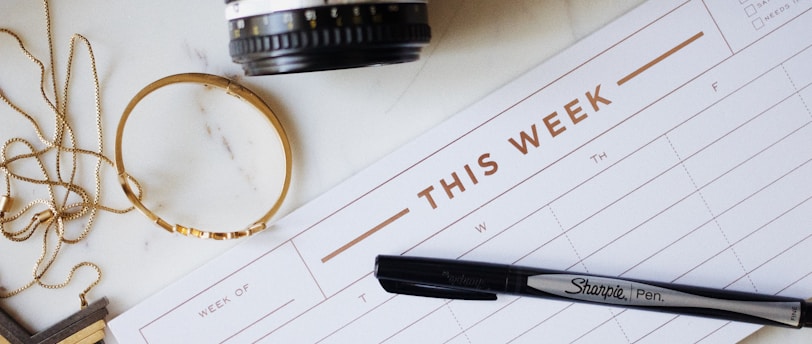One Pen, One Page: A Journaling Challenge to Meet Myself Again
JOURNALING
Why Journaling Feels Hard
Journaling isn’t complicated. You grab a pen, open a notebook, and write. And yet, if we’re being honest, the hardest part of journaling isn’t the act of writing. It’s the mental barriers we’ve built around it.
What am I supposed to write about?
Does it have to sound good?
What if it doesn’t help?
What if I can’t keep up with it?
On top of that, life isn’t exactly designed to make space for reflection. Work, social commitments, family obligations, and an overflowing digital world leave little room for quiet. We often glance longingly at our notebooks but convince ourselves we’ll “get to it later.”
Spoiler alert: Later rarely arrives.
The truth is, the hardest part of journaling is just starting. But when you do, the benefits can be profound.
The Relentless Pace of Modern Life
Scrolling through social media first thing in the morning. Replying to emails as you sip your coffee. Jumping from one meeting to the next. We’re constantly absorbing information, reacting to situations, and moving from task to task. Life feels fast, and there’s little time to check in with ourselves.
But here’s the catch: Just because you’re not processing your emotions doesn’t mean they disappear. Instead, they settle in the background like clutter in an overstuffed bag. Overwhelmed yet?
The consequences of leaving these thoughts and emotions unchecked can be subtle but insidious:
Anxiety that seems to appear out of nowhere.
Burnout that sneaks up on you even when you thought you were “managing fine.”
Irritation or sadness you can’t quite trace to a single cause.
The quiet (but constant) feeling that something is missing.
When we never take time to reflect, we lose touch with ourselves. Journaling isn’t just about writing on a page; it’s an act of hitting pause, unpacking that mental clutter, and giving ourselves space to breathe.
What You Need to Start Journaling
Forget the pages-long instructions or the pressure to buy the perfect, aesthetically pleasing journal. The beauty of journaling lies in its simplicity. Here’s all you truly need:
A Notebook (Or Loose Paper): Your journal doesn’t have to be fancy. Any notebook you have on hand will do.
A Pen (Not a Pencil): Why a pen? Pens offer permanence. By using ink, you’re reminding yourself that your thoughts and experiences are valid and unerasable. No takebacks, just acknowledgment.
10–15 Quiet Minutes: Evening works best for me. Find a time that feels natural for reflection but doesn’t feel forced. Consistency will flow easier when it feels right for your routine.
And that’s it. No app to download. No elaborate system. Just you, your thoughts, and a willingness to be honest.
My 7-Day Journaling Challenge
I’ve tried to journal before. I’ve failed before too. It’s not about striving for perfection anymore. It’s about meeting myself where I am and committing to just seven days. Here’s how I’m structuring this:
Nightly Routine:
Find a quiet space and remove distractions (put your phone on silent, if possible).
Open my notebook to a fresh page.
Write down three prompts to guide my thoughts:
What happened today?
What emotions surfaced, and why?
One thing I want to carry forward into tomorrow.
Write for 10–15 minutes without overthinking. Raw and unfiltered is the goal.




Inspiration
Mindful living and creativity for everyday life.
Nourishing Food
Journaling
Everydaychapter@gmail.com
© 2025. All rights reserved.
Skincare Retuals
Hand crafts